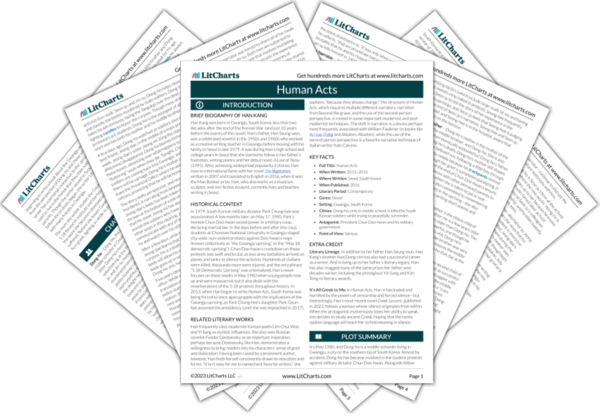Previous
Chapter 5: The Factory Girl, 2002
|
Previous
Chapter 5: The Factory Girl, 2002
|
Human Acts: Chapter 6: The Boy’s Mother, 2010 Summary & Analysis |
Next
Epilogue: The Writer, 2013
|


Upgrade to unlock the analysis and theme tracking for all of Human ActsHuman Acts!
Get LitCharts A+